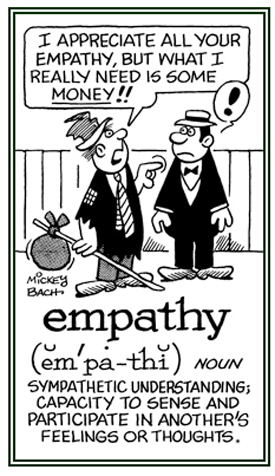egopathy
(s) (noun), egopathies
(pl)
A hostile behavior due to a psychopathically exaggerated sense of self-importance: Patients who are experiencing
egopathy are characterized by a strong psychological condition that compels them to deprecate others in their constant aggressive and unconceding attitudes.
Obviously egopathy was rampant at Ted's job because a supervisor was firing people for no good reason or justification.
elastopathy
(s) (noun), elastopathies
(pl)
A deficiency of elastic tissue: During the examination of the newborn baby, an elastopathy was detected, which was a defect in the composition of the infant's flexible tissues.
electropathology
(s) (noun) (no pl)
Determination of the electrical reaction of muscles and nerves as a means of medical diagnosis: Electropathology is the study of pathological conditions with the aid of an electric current used in measuring physical responses.
electropathy
(s) (noun) (no pl)
The treatment of an illness with electricity; electrotherapeutics: For Russell's medical treatment, he had appointments in the clinic for electropathy, which helped him a lot.
eleopathy
(s) (noun), eleopathies
(pl)
An uncommon condition of the swelling of the joints: Eleopathy is possibly due to a fatty deposit following a contusion which is an injury of a person's body, but without a break in the skin.
embryopathology
(s) (noun) (no pl)
The study of defective developments of fetuses: Part of Neal's medical studies included embryopathology in which abnormal embryos were inspected and examined.
embryopathy
(s) (noun), embryopathies
(pl)
A morbid condition in the embryo or fetus; fetopathy: There are different types of embryopathies including diabetic embryopathy, phenytoin embryopathy, and thalidomide embryopathy.
emmeniopathy
(s) (noun), emmeniophathies
(pl)
A disorder of the process of menstruation: Nancy was already 14 and her period hadn't started yet, and when she went to her doctor to be checked, he diagnosed her complaint as being a case of emmeniopathy, which could be cured.
empathetic
(em" puh THET ik) (adjective), more empathetic, most empathetic
Descriptive of a person noticing and understanding the feeling of others; compassionate: Jack had the aptness of being empathetic and sympathetic towards his grandparents and other elderly people.
empathist
(s) (noun), empathists
(pl)
1. Anyone who uses intellectual identification with, or the vicarious experiencing of, the feelings, thoughts, or attitudes of another person: Because Stella had the capacity of understanding other people so well, she was known to be an empathist.
2. Someone who has an imaginative response to an object: An empathist can project his or her own personality into a natural object or a work of art, or who can assign feelings or attitudes in oneself to the objects.
empathize
(verb), empathizes; empathized; empathizing
To understand another person's situations, feelings, and difficulties: When Elizabeth could not complete her assignment on time at work, her co-workers empathized with her and helped her get it done as expected by her supervisor.
empathy
(EM puh thee) (s) (noun), empathies
(pl)
1. An identification with and an understanding of another person's feelings, situation, or motives: Ursula's work with the street people gave her considerably more
empathy for the homeless than she had ever had before.
2. Etymology: from Greek
empátheia, "passion"; from
em-, "in" +
páthos, "feeling".
Empathy was apparently borrowed in 1904 from Greek empátheia, "passion"; ; from em-, "in" + páthos, "feeling". It was a translation of the German Einfühlung (ein; in + Fühlung, feeling), a word which was introduced in 1903 by the German philosopher and psychologist, Theodore Lipps, who originated the theory of aesthetic empathy, "the art of appreciation depends on the viewer's ability to project his personality into the object".
—Based on information from
The Barnhart Dictionary of Etymology, edited by Robert K. Barnhart.
 © ALL rights are reserved.
© ALL rights are reserved.
Go to this Word A Day Revisited Index
so you can see more of Mickey Bach's cartoons.
True empathy is when another person strikes it rich and you feel as if it’s money in YOUR pocket.
—Anonymous
enantiopathy
(s) (noun) (no pl)
A treatment of an illness with cures that produce results different from those that were produced by the illness itself; allopathy:
Enantiopathy is an expression used by followers of Hahnemann or homeopathists.
encephalopathy, encephalopathia
(s) (noun); encephalopathies; encephalopathias
(pl)
A disease or disorder of the brain: An
encephalopathy is a brain disease, especially one involving alterations of brain structure.
Encephalopathy involves large parts of the brain (or the whole organ), instead of identifiable changes confined just to parts of the brain.
 Learn how anxieties and depressions affect the brain.
Learn how anxieties and depressions affect the brain.
endocrinopathy
(s) (noun), endocrinopathies
(pl)
A functional disorder of an endocrsine gland and the consequences thereof: Endocrinopathy is a disease of an endocrine gland which involves the hormones of a living being.

You can find self-scoring quizzes over many of the words in this subject area by going to this
Vocabulary Quizzes page.

![]() Learn how anxieties and depressions affect the brain.
Learn how anxieties and depressions affect the brain.

